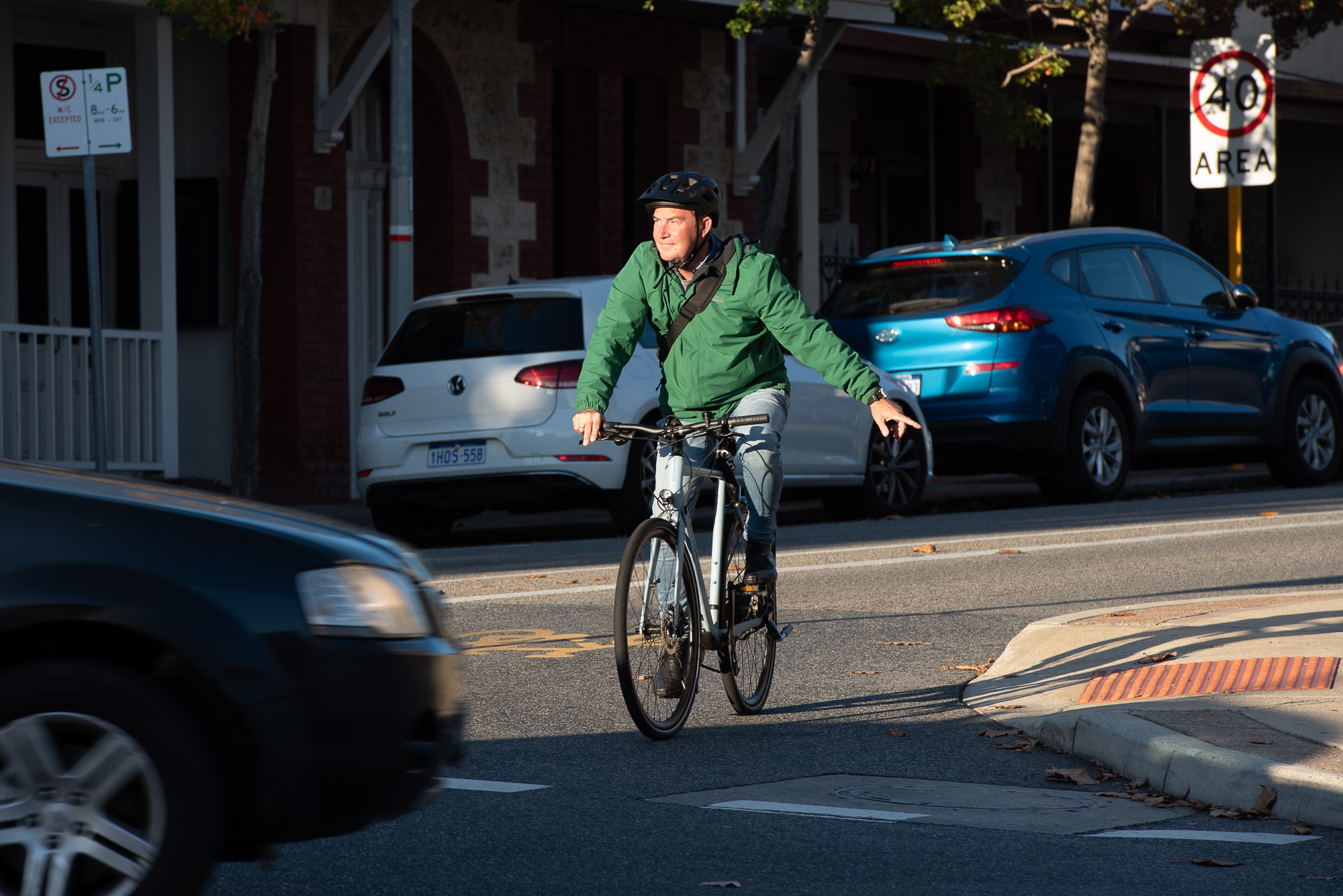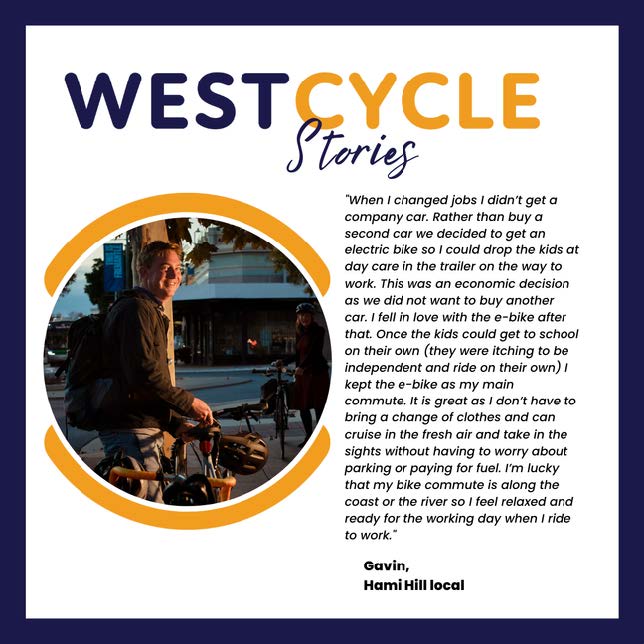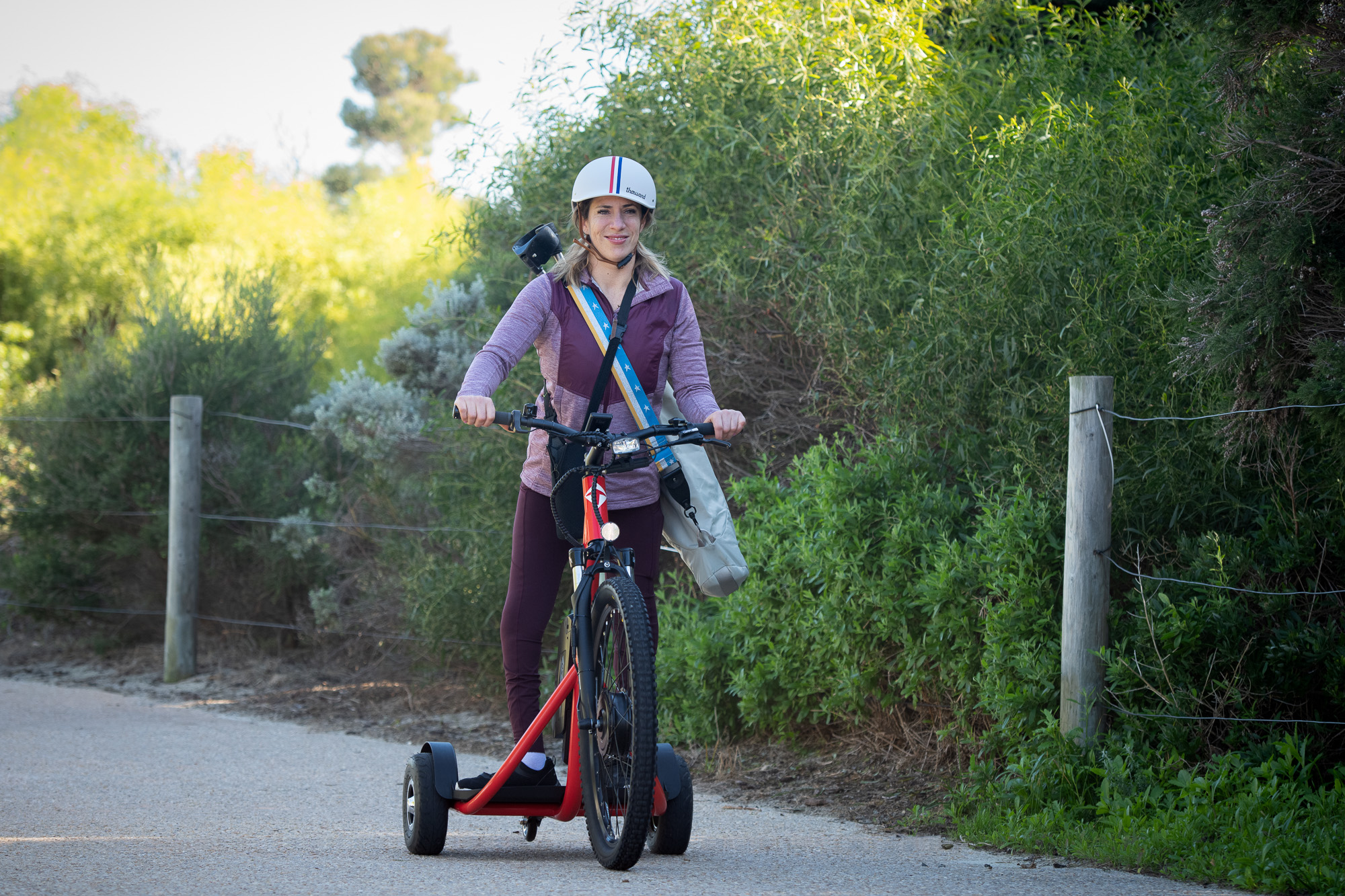Ride the sustainable transport wave with WestCycle’s new Get2Work program
Get2Work creates greener businesses with healthier and happier staff

Welcome to WestCycle’s Get2Work Program – a cycling-focused initiative to build greener, healthier and stronger businesses and organisations.
Get2Work offers a range of benefits to both employees and employers, from reducing carbon footprint to improving employee health and wellbeing, boosting company-wide talent acquisition and retention, supporting Environmental, Social and Governance (ESG) targets, and reducing staff parking pressures.
Active transport has become an essential part of modern life, and WestCycle’s Get2Work program supports workplaces to optimise and embed these evolving practices. With the boom in electric bikes and scooters, staff can incorporate an array of active transport options into their commute without always needing to shower when they get to work.
Sustainable urban mobility: How Get2Work works for your business
Get2Work focuses on five key areas:
- reducing environmental impact
- improving employee health and wellbeing
- being a good corporate citizen
- attracting and retaining talent
- reducing staff parking burden
Green commuting, greener workplaces
Get2Work encourages and activates the use of all sustainable modes of transport to reduce your organisation’s environmental impact and help meet sustainability targets.
With bike riding estimated to produce one tenth of the Co2 emissions of many cars,each staff member who rides (around 10km each way) rather than drives to work three days per week can save something like 360kg of Co2 emissions each year.[1]
In addition, supporting active transport reduces traffic congestion, air pollution and staff parking needs.
Cycling and health: Improving employee health and wellbeing
Boosting exercise and exposure to the outdoors is a powerful combination for physical and mental health.
Cycling and other micromobility modes have known brain-boosting benefits, and can reduce stress, anxiety and depression, while increasing focus and productivity.
Studies have shown regular cycling increases cardiovascular fitness, muscle strength and flexibility, and improves posture, balance and coordination. Cycling is also effective in reducing body fat levels.[2]
Sustainable transport: Being a good corporate citizen
Supporting active transport marks out employee-first organisations, minimises environmental impact, as well as the negative impacts of motorised commuting on local communities, while better engaging with them.
Get2Work initiatives promote healthy and sustained physical activity, elevate staff engagement activities, and boost participation in community service projects.
Micromobility boost: Attracting and retaining talent
Get2Work bolsters your organisation’s talent retention capacity by demonstrating your genuine commitment to ESG principles and employee health. It’s a million miles from greenwashing.
By supporting your employees to embrace micromobility and active transport, Get2Work signals to prospective hires that your business is a progressive industry leader and an attractive place to work.
Reduced parking: Cheaper, greener, more convenient
A workforce mobilised by active transport can significantly shift your firm’s parking requirements, especially in costly and competitive sites like Perth’s CBD.
Green commuting is a potent solution to an issue that affects most larger businesses and organisations.

What you get 👇🏻
The Get2Work program offers several deliverables including:
- An Active Transport Audit. A thorough assessment of your workplace’s current and future capacity to support active transport. We assess your current staff practices, the rider catchment, physical environment and facilities, workplace policies, barriers, and sustainable transport incentives.
- A Travel Plan. Get2Work helps you refine and establish clear goals to assist staff and visitors to engage in low or zero carbon transport when travelling to your workplace.
- Once the Active Transport Audit has been conducted and the Travel Plan is in place, companies receive WestCycle Workplace accreditation that broadcasts your green commuting credentials as it supports your ESG targets and broader community standing. Simultaneously serve our precious planet and your firm’s ability to attract and retain the most talented people!
- ESG reporting. We drill into the bike riding ESG and community initiatives undertaken during the year to deliver a potent data-rich report that can drive real change. Our ESG reports contain data, case studies, photos, and activity summary of sustainable transport activities.
[1] https://ecf.com/news-and-events/news/how-much-co2-does-cycling-really-save
[2] https://www.healthdirect.gov.au/cycling-and-your-health

To know more about WestCycle’s Get2Work program
please contact:
Wayne Bradshaw
CEO
WestCycle
E: wayne.bradshaw@westcycle.org.au
P: 08 6336 9688




